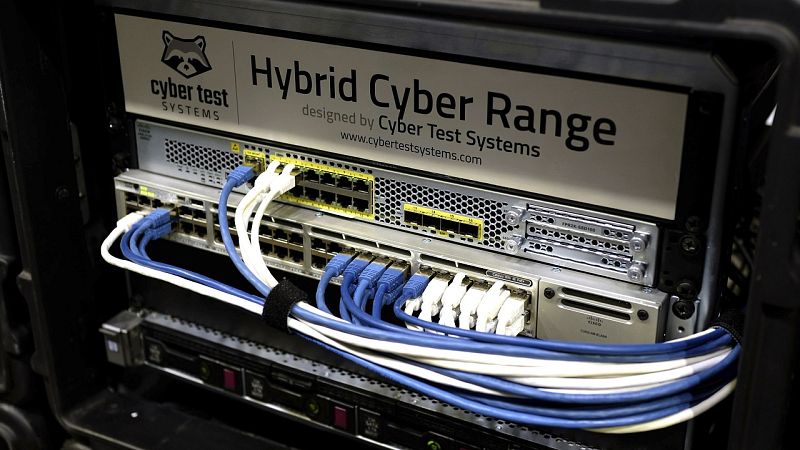Poland to ask EU telecom ministers to sign cybersecurity declaration in Warsaw

Poland plans to ask EU member states to sign a cybersecurity declaration at an informal meeting of telecom ministers in Warsaw in early March, Euronews has learned.
The text, which is still being discussed, will cover areas such as preparedness for incidents as well as stronger cooperation, according to sources from within the EU institutions.
Strengthening cybersecurity in the EU is one of the key priorities of the Polish while they chair EU meetings in the first half of this year.
On the agenda for the 4-5 March telecom ministers’ meeting, which is “entirely dedicated” to cybersecurity, will also be the issue of responding to large-scale incidents and crises, strengthening civil-military cooperation in cyberspace and investments.
A letter by the Dutch government to parliament earlier this month also hinted at the Warsaw declaration. According to Economy Minister Dirk Beljaarts, the Netherlands will stress that the document should include a reference to “future proof policy” as the regulatory landscape is developing rapidly.
Submarine cables
The European Commission said on Friday that it will take action to strengthen the security and resilience of submarine cables, which form part of Europe’s critical infrastructure, following recent incidents in the Baltic Sea.
By the end of this year, the Commission and the High Representative are expected to present, amongst other actions, the mapping of existing and planned submarine cable infrastructures, a Coordinated Risk Assessment, a Cable Security Toolbox of mitigating measures as well as a priority list of Cable Projects of European Interest, the EU executive said.
Euronews reported earlier this month that 20 out of the 27 EU countries have failed to adopt national legislation that allows cyber rules for critical entities to be in force.
The Network and Information Security Directive 2 (NIS2), which was approved back in 2022 with the aim to protect critical entities, such as energy, transport, banking, water and digital infrastructures, against major cyber incidents. Most European countries far behind on critical cyber rules | Euronews
During a debate in the European Parliament in Strasbourg last week, the Commission called on the member states to urgently implement NIS2 to improve EU preparedness and resilience during hybrid crises - such as the recent attacks on undersea cables.

